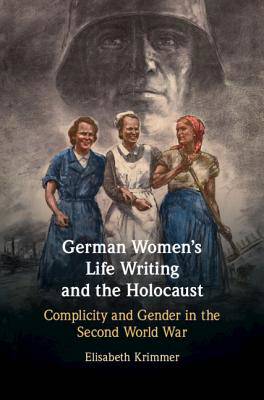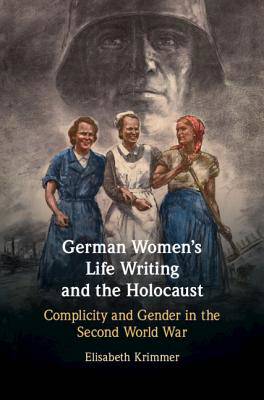
Door een staking bij bpost kan je online bestelling op dit moment iets langer onderweg zijn dan voorzien. Dringend iets nodig? Onze winkels ontvangen jou met open armen!
- Afhalen na 1 uur in een winkel met voorraad
- Gratis thuislevering in België vanaf € 30
- Ruim aanbod met 7 miljoen producten
Door een staking bij bpost kan je online bestelling op dit moment iets langer onderweg zijn dan voorzien. Dringend iets nodig? Onze winkels ontvangen jou met open armen!
- Afhalen na 1 uur in een winkel met voorraad
- Gratis thuislevering in België vanaf € 30
- Ruim aanbod met 7 miljoen producten
Zoeken
German Women's Life Writing and the Holocaust
Complicity and Gender in the Second World War
Elisabeth Krimmer
Hardcover | Engels
€ 172,95
+ 345 punten
Uitvoering
Omschrijving
This important study examines women's life writing about the Second World War and the Holocaust, such as memoirs, diaries, docunovels, and autobiographically inspired fiction. Through a historical and literary study of the complex relationship between gender, genocide, and female agency, the analyzes correct androcentric views of the Second World War and seek to further our understanding of a group that, although crucial to the functioning of the National Socialist regime, has often been overlooked: that of the complicit bystander. Chapters on army auxiliaries, nurses, female refugees, rape victims, and Holocaust survivors analyze women's motivations for enlisting in the National Socialist cause, as well as for their continuing support for the regime and, in some cases, their growing estrangement from it. The readings allow insights into the nature of complicity itself, the emergence of violence in civil society, and the possibility of social justice.
Specificaties
Betrokkenen
- Auteur(s):
- Uitgeverij:
Inhoud
- Aantal bladzijden:
- 292
- Taal:
- Engels
Eigenschappen
- Productcode (EAN):
- 9781108472821
- Verschijningsdatum:
- 1/11/2018
- Uitvoering:
- Hardcover
- Formaat:
- Genaaid
- Afmetingen:
- 159 mm x 235 mm
- Gewicht:
- 566 g

Alleen bij Standaard Boekhandel
+ 345 punten op je klantenkaart van Standaard Boekhandel
Beoordelingen
We publiceren alleen reviews die voldoen aan de voorwaarden voor reviews. Bekijk onze voorwaarden voor reviews.











